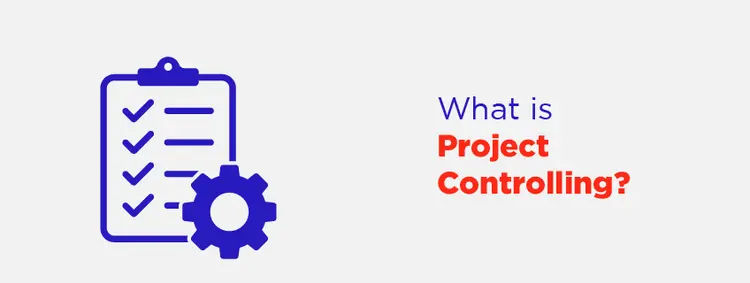The most prestigious qualification for business analysts is the CBAP Certification, or Certified Business Analysis Professional (CBAP). This programme is designed for individuals who have worked in the field of business analysis for at least 7,500 hours in the previous ten years. As a result, let us take a look at the most recent CBAP requirements and other criteria in this article. For example, in terms of Business Analysis Certifications, it is often regarded as the gold standard. It also aids in the development of your qualifications as a business analyst.
As a result, this certification, which is based on the BABOK (business analysis body of knowledge), requires a complete understanding of business analysis practice, activities, and concepts. It also assesses your ability to apply what you’ve learned and practiced in real-life situations. Hence, the combination of CBAP certification and BABOK study guide is terrific.
From the year 2020, the IIBA will conduct the test entirely online. Previously, you had to take the exam in a Prometric test facility.
CBAP Certification Study Guide
The Certified Business Analysis Professional (CBAP) Exam is the best business management certifications for business analysts looking to advance in their careers. CBAP certification provides demonstrated benefits in terms of remuneration, career advancement, and new chances in worldwide markets. The CBAP certification test requires a thorough understanding of the BABOK and the application of BABOK concept to a variety of business analysis scenarios.
The Exam
The exam structure is specified on the IIBA website. There are 120 multiple-choice questions with just one correct answer. There were no multiple-choice questions. Questions are drawn from the whole BABOK® Guide and dispersed according to the established approach.
- 10% of the questions are scenario-based, and they take roughly 1 to 1.5 pages to read and comprehend. The test tool, thankfully, allows you to highlight words. These are the more difficult ones, and they need some careful consideration of what Knowledge Area(s) you are in, what stakeholder attitudes are suggested, and what the BA could have overlooked, among other things.
- 10% of the questions were straightforward, with the correct answer clear with only one reading of the BABOK® or your prior BA expertise.
- You will need to work on process of elimination of answers for 20% of the problems because no one correct solution is leapt out.
- 20% requires a thorough comprehension of the methodologies and their applicability to a specific BA problem/modeling scenario.
- The numerically challenged might use an on-screen calculator (along with pencil and paper) to aid them with the 5% of questions that required some number crunching calculations.
- The remaining questions are all in the middle of the difficulty scale, requiring some thought, reflection on the Knowledge Area in issue, as well as related tools, guidelines, and procedures. You can also mark questions as favourites to make it easier to come back to them later.
Know more about the tips for cracking the cbap exam.
Benefits of Becoming a CBAP
According to the 2020 Global Business Analysis Salary Survey Report from the International Institute of Business Analysis TM (IIBA®), business analysts who possess an IIBA CBAP® certification earn 26% more than those who do not.
- Competence, knowledge, and experience are recognized globally.
- Increased recognition and opportunities for professional progression both inside the company and in the market as a whole.
- Selection for significant and challenging business projects is more likely.
- Greater self-assurance in applying the knowledge obtained through certification test preparation to day-to-day BA tasks.
- As a member of the Elite BA Professional Community, you’ll have access to crucial networking opportunities and the chance to communicate with like-minded people.
The International Institute of Business Analysis offers a level 3 certification in business analysis (IIBA)
CBAP Certification Requirements
Here is the listicle of Requirements for CBAP Certificate:
1. Examine Your Eligibility Requirements
CBAP Certification is a professional certification for people who have worked in the field of business analysis for a long time. The CBAP certification is designed for individuals who have more than five years of practical business analysis expertise and are senior members of the Business Analysis community. When compared to the intermediate level Certification of Competency in Business Analysis (CCBA) and the basic level Entry Certificate in Business Analysis, the Advanced Level Certification issued by the International Institute of Business Analysis (IIBA) has more severe qualifying standards (ECBA).
- In the previous ten years, you must have completed a minimum of 7,500 hours of business analysis work experience. (This may be equated to about 5 years of business analysis expertise)
- A minimum of 900 hours in four of the six BABOK® Guide Version 3 Knowledge Areas were completed as part of this experience, for a total of at least 3,600 hours out of the necessary total of 7,500.
- In the last four years, you must have completed at least 35 hours of professional development.
- Provide two references, one from a Career Manager, one from a Client, and one from a Certified Business Analyst Professional.
- Acceptance of the Code of Conduct is required.
- Terms & Conditions must be accepted.
2. Check the CBAP Certification Cost
The cost of the CBAP Certification is divided into three parts: membership fees, application costs, and exam fees. The cost of membership varies depending on where you live. The non-refundable application price is USD 125, while the exam fees is USD 325 for member and USD 450 for non-member.
3. Check how your country’s/region’s fees is determined
In the United States of America, the total cost of CBAP certification is: The membership price is USD 125, the application fee is USD 125, and the exam fee is USD 325, totaling USD 575.
The entire cost of CBAP Certification in India is USD 505, which includes membership fees of USD 55, application costs of USD 125, and exam expenses of USD 325.
4. Become familiar with the CBAP Certification Exam Syllabus.
The test is based on the third edition of the Business Analysis Body of Knowledge (BABOK) reference. As a result, the BABOK handbook is divided into four sections: knowledge, techniques, perspectives, and competences.
The test is based entirely on BABOK v3. The following is the weighting of the knowledge areas:
Weightage:
|
Business Analysis Planning & Monitoring |
14% |
|
Elicitation & Collaboration |
12% |
|
Requirements Analysis and Design Definition |
30% |
|
Solution Evaluation |
14% |
|
Requirements Life Cycle Management |
15% |
|
Strategy Analysis |
15% |
5. Learn about the most recent CBAP exam pattern.
The CBAP Certification test consists of a series of multiple-choice questions. As a result, the questions are meant to assess your ability to use the BABOK architecture and ideas. There are questions based on scenarios and case studies. The empirical data shows that case study-based questions might account for 20% to 35% of the total. The case studies are lengthy (one or two pages), and they are used to answer many questions.
- There are 120 multiple-choice questions.
- The test will last for 210 minutes (3.5 hours)
- Four alternatives are there for each question.
- One right answer for each question.
- There is no negative marking on the paper.
- The application of BABOK concept is the base of CBAP questions.
CBAP TRAINING COURSE is available to try so you can do that too.
5 Steps to Become a Successful CBAP
- Set a deadline for the test and make it a habit to study the BABOK and other guidelines every day without fail. Spend extra time on weekends if possible.
- Read the BABOK handbook several times to grasp concepts rather than cramming the information. If you’re having trouble comprehending the BABOK content, use a succinct study guide beforehand or in conjunction with it.
- Sample tests should be practiced in stages. To gain a handle on all of the topics, start with chapter-by-chapter examinations, then go on to scenario-based and case study assessments, and eventually comprehensive simulation exams.
- Maintain a close eye on your simulated exam results. Continue to read and practice until you routinely score 80-85% on simulated examinations.
- As a consequence, on professional platforms, look for study groups. Join these organizations to benefit from one other’s expertise and experience. Find a CBAP recipient who can function as your mentor and set up time to help you prepare for the CBAP test.
Here is a pro tip, because the exam will not be simple, calm your anxiety and rest for a few hours or a day before the exam date to keep yourself fresh. Even so, you can perform a quick review.
Conclusion
A well recognized certification like CBAP would undoubtedly help a business analysis practitioner stand out from the crowd by demonstrating that he or she has the necessary knowledge and expertise in the industry. As a result, there will be more prospects for job progression and growth. CBAP certification, on the other hand, is not easy to obtain. To prepare for and pass the exam on the first try, it requires (but is not limited to) well-planned work and dedication to read the BABOK/other guides, help from training providers and mentors, and practice through sample examinations. To get the certification, you can also try Knowledgehut cbap training course.
Frequently Asked Questions (FAQs)
1. How do I study for the CBAP exam?
Because the CBAP test is competency-based, you must prepare well before taking it if you want to pass it on the first try. Are you a newcomer to the field of business analysis? Begin your career as a business analyst by passing the ECBA certification test. Good planning yields good results.
2. How hard is it to get a CBAP?
According to the BABOK® Guide, the CBAP ® certification needs 5 years (7,500 hours) of business analysis expertise. You must also show that you have 900 hours of experience in at least four of the six areas of knowledge. It’s just that hard.
3. Which is harder PMP or CBAP?
In fact, because so few people have it, having a CBAP might offer you an edge athough it’s the hard one. In general, the PMP certification is more widely recognized than the CBAP certification, which means greater work prospects and opportunities for promotion.
4. How do I start CBAP?
To get the CBAP® certificate, candidates must have completed a minimum of 7,500 hours of Business Analysis Work experience in the past 10 years. This experience yielded at least 3,600 of the required 7,500 hours, with a minimum of 900 hours completed in four of the six BABOK® Guide Knowledge Areas.
5. How long does it take to study for CBAP?
You may become a CBAP certified professional simply by being prepared under expert mentors with a solid comprehension of BABOK. Around 150/200 hours of study is adequate for CBAP and get certified. To pass the CBAP test, you must read the BABOK 2/3 times in order to fully know the concept and relationship.





















Discussion about this post